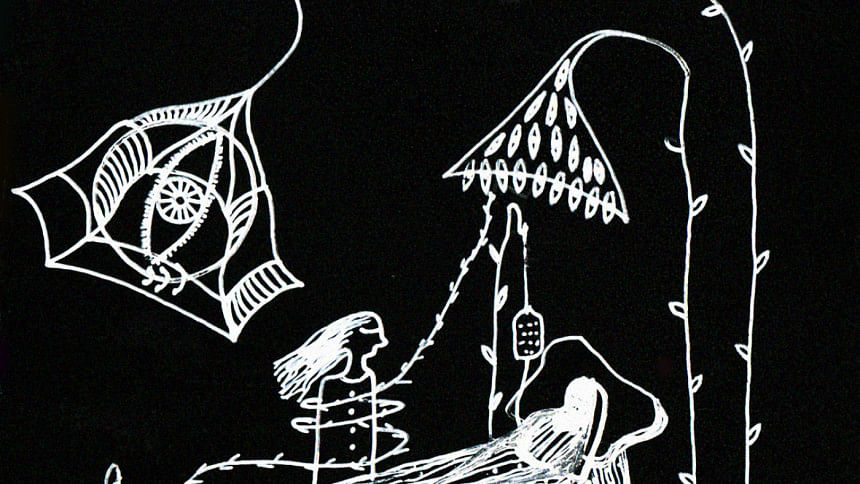Death is different for a daughter

We think of death as the great equaliser. We come to this world alone—as the saying goes—and so we take part of it alone too. The grief that consumes the deceased's loved ones also seems like a universal experience, and so we console each other with words of alliance, of connection. "I know exactly what you're going through," we say. But it was only upon facing death up close that I discovered how differently it affects each person, specific to their gender, their circumstance in life. In my case, during the time of my father's demise, I realised that death looks different to a daughter than it does to a son—that everything from hospital duties to the logistics of a funeral, from saying our goodbyes to praying for his soul, would be different for us, all because death in this case had arrived at the doorstep of a man who had birthed only daughters.
I think back to April 9, the day I took him to the emergency room as he suffered from acute asthma. The doctor in charge looked at my father with a mixture of pity and sympathy and asked, "Apnar shathe uni i aschen?" ("Is she the only one here with you?"), pointing towards me, to which I replied, "Hai ami i aschi. Bolen ki lagbe?" ("Yes, I am the only one here with him. How can I help you?") Whether his question had to do with my gender or whatever he presumed my age to be, I do not know till date. What I do know is that he was certain that I would not be able to handle the situation.
Then came the days at the ICU, where my father was on life support for 24 days at a stretch. My sister and I would get updates from the doctors, when we were constantly asked, "Apnader shathe ar keo nai?" ("Is no one else here with you?"), followed by hushed noises and sad nods from them. Once, when I asked what a bronchoscopy would solve, I was asked, "Apni ki doctor?" ("Are you a doctor?") At least he took me seriously when I told him I work for the United Nations, although I am not certain if I should be glad about that. Not to mention the countless times I was asked by my relatives to take a male member of the family to speak with the doctors—not because they are doctors themselves, but because they are men. At various points during those 24 days, I kept my calm and stood my ground with a firm glare at whoever stood in front of me. But in some other instances, I lost the battle with my anger and screamed and cursed at whoever crossed me.
My father left us on May 13, a day I will remember for more reasons than one. My sister and I were barred from going to close to him at the mortuary, where I stood right next to him the entire time, and from taking part in his janaza, with which I did not argue, but took part in nevertheless. We were told that we could not sit in the car that was carrying him to the mosque and then the graveyard, for reasons unknown to me and I imagine the rest of humanity too. I simply climbed into the front seat and locked the door without looking at the relatives who were trying to stop me. I went to the graveyard, stood next to him and bid my final farewell.
Three days later, during a dua, an imam with all his soulful emotions sadly exclaimed how my father had only two daughters. He said this not once, but twice. This was a man who I paid to come and say a few prayers for my father's departed soul. In the end, though, many relatives came to my mother and I and talked about how much we, his daughters, had done for our father. How I had truly acted like the "man of the house". I know they meant it as a compliment, so I did not hurt their sentiments by arguing that I did not need to be the "man" in order to do what I had done and will continue to do. What I do know is that I have done as much as I can for him. As much as any daughter would.
Syeda Samara Mortada works at UN Women as the Communications Analyst and is a firm believer of equal rights.

 For all latest news, follow The Daily Star's Google News channel.
For all latest news, follow The Daily Star's Google News channel. 



Comments